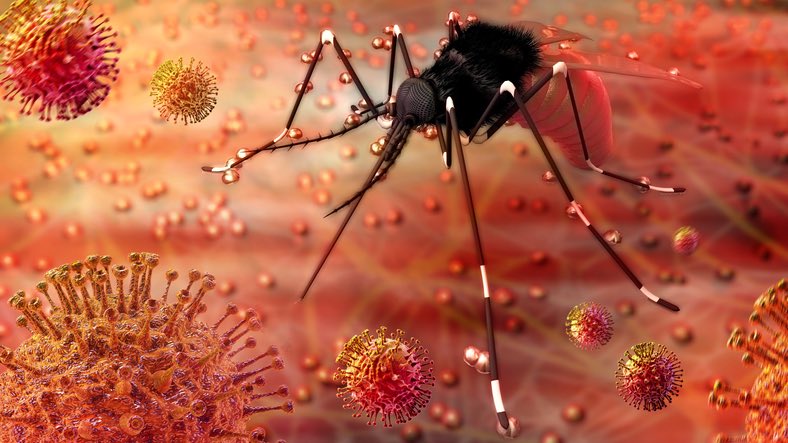Viral Infections That Increase the Risk of Miscarriage

With the recent COVID-19 pandemic and outbreaks of infections like monkeypox, many pregnant women and families might be concerned about viral infections that might contribute to pregnancy loss.
Unfortunately, there are several types of viruses that can increase the risk of miscarriage or stillbirth. It’s important to stay informed of virus infections that can cause pregnancy complications, as well as what you can do to reduce your risk factors for adverse pregnancy outcomes.
1. Zika Virus

Zika virus is commonly thought to cause fetal abnormalities, like microcephaly, but researchers have recently found that it may also lead to miscarriages and stillbirths as well. Zika virus commonly spreads through mosquito bites, which is why many doctors recommend that pregnant women avoid traveling to countries where the Zika virus or other infectious diseases are prevalent.
Unfortunately, there is no vaccine or known treatment for Zika virus, making it all the more important to exercise caution in where you travel. Even if you aren’t currently pregnant, if there is a chance you could become pregnant, you should take precautions to avoid contracting the Zika virus because it can cause problems even in very early pregnancy.
2. Parvovirus B19

Parvovirus can cause a condition called fifth disease. Fifth disease is very mild and many people contract it in childhood without even realizing it, giving them immunity into adulthood.
Although it’s rare, the CDC reports that roughly 5% of pregnant women who contract fifth disease will have a miscarriage. Your doctor can conduct a blood test to see if you already have immunity to parvovirus from previously coming into contact with the virus.
3. Rubella

Rubella - aka ”German Measles” is a virus that many adults are already vaccinated against through the MMR vaccine, making it a relatively uncommon virus. Rubella can cause miscarriage or birth defects if contracted in the first trimester. If you did not receive the MMR vaccine as a child and are planning to become pregnant, talk to your healthcare provider about getting vaccinated now. Your doctor can also run a blood test to check whether your body has antibodies to protect you from contracting rubella.
4. Herpes Simplex Virus
Herpes simplex virus is a virus that’s transmitted by coming into contact with a person carrying the virus. In most cases, herpes simplex virus does not lead to miscarriage. Scientists still need to do more research to better understand how herpes simplex virus may or may not contribute to miscarriage risk.
5. Chlamydia
Much like herpes simplex virus, chlamydia is a sexually transmitted infection that can increase the risk of pregnancy complications. In particular, chlamydia can cause an increased risk of ectopic pregnancy and miscarriage.
Although it‘s possible to have chlamydia and not show any symptoms, common symptoms of chlamydia include vaginal discharge, itching, and pain during sex or during urination. If you believe you may have contracted chlamydia, it’s important to talk to your healthcare provider about treatment options. Chlamydia is a very treatable infection that can easily clear up with a course of antibiotics.
6. Cytomegalovirus

Cytomegalovirus - aka CMV - is a common virus that’s similar to several other common viruses, namely herpes simplex virus and chicken pox. CMV infection can stay dormant in the body for a long time, becoming active many years after infection. CMV infection is spread through bodily fluids and can be transmitted from mom to baby during vaginal childbirth. Scientists aren’t quite sure whether CMV increases the risk of miscarriage, but it can cause problems after birth. While most babies won‘t have any negative outcomes from contracting congenital CMV, some will have more negative outcomes.
7. COVID-19
Despite a flurry of new research, there’s still a lot that we don’t know about COVID-19. One thing that researchers have found is that COVID-19 can cause problems for pregnant women, especially in the first trimester of pregnancy. One study found a relationship between early pregnancy loss and COVID-19 infection. Although more research is needed, it’s still a good idea to be up to date on COVID-19 vaccinations, which the CDC says is safe for pregnant women.
Other Infections to Avoid
While the above conditions are all considered viruses, there are also some bacterial infections that pregnant women should avoid. There are also some viral infections that don’t lead to miscarriage, but can still cause serious congenital birth defects.
Listeria
Listeria is a food-borne illness and is a leading cause of food poisoning in the United States. When a pregnant woman comes into contact with listeria, she may develop listeriosis, which can cause miscarriage, preterm birth, or stillbirth. Protect yourself against potential listeria exposure by avoiding consuming unpasteurized milk, deli meat, sushi, and soft cheeses.
Toxoplasmosis
Toxoplasma is a bacteria that is commonly found in cat feces. Toxoplasmosis interferes with fetal development and can lead to congenital birth defects and miscarriage. If you are a cat owner, avoid changing the litter box while pregnant!
Chicken Pox
Varicella is the virus that we commonly call chicken pox. Chicken pox is a highly contagious virus that you may contract after coming into contact with an infected person. Many people carry immunity to chicken pox either from contracting it as a child or receiving a vaccine.
Hepatitis
Hepatitis is an inflammatory viral infection that impacts the liver. While hepatitis is not associated with a hihger risk of miscarriage, it can cause preterm birth. Hepatitis is also dangerous because it can be passed from mother to baby through the placenta.
What You Can Do to Lower Your Risk

The best way to be prepared for potential risk is to have a better understanding of that risk. If you are immunocompromised or have other conditions that make you a high risk for any of these infections, consider talking to your healthcare provider about your concerns.
Also make sure that you’re up to date on all the necessary vaccinations, including getting your yearly flu shot. Follow your healthcare provider’s recommendations on things like medications, supplements, travel, and vaccinations. Your healthcare provider may also be able to recommend things you can do to boost your immune response to fight off infection.
You can also be sure to practice good hygiene practices throughout your pregnancy, like washing your hands regularly and cooking meat until it’s well done. Try to stay away from people who are unwell while you are pregnant, and consider wearing a mask while out in public.

